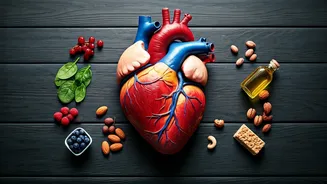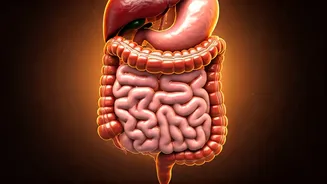Protein Bars: Unveiled Hazards
Protein bars, often marketed as health-conscious snacks, are frequently packed with ingredients a cardiologist would steer clear of. Many are loaded with added
sugars and artificial sweeteners, which can spike blood sugar levels. They may also contain excessive amounts of processed ingredients and unhealthy fats, counteracting the benefits of protein. High fructose corn syrup, a common sweetener, is another concern, as its consumption has been linked to various health issues. Even bars with a 'low sugar' label might contain sugar alcohols, which can cause digestive problems. For the cardiologist, the seemingly convenient protein bar often masks a cocktail of undesirable additives, making it a less than ideal choice for daily consumption.
Diet Food: The Deceptive Label
The term 'diet food' can be misleading, representing another category of items the cardiologist typically avoids. Many of these products are highly processed, engineered to be low in calories, but often lack essential nutrients. To compensate for the reduced taste of fat and sugar, artificial ingredients, flavor enhancers, and thickeners are often added. These artificial elements, along with excessive salt, may pose health risks, including an increased risk of heart issues. Furthermore, diet foods often lead to an unhealthy relationship with food, potentially promoting feelings of deprivation and causing a cycle of overeating. The cardiologist's avoidance stems from a focus on natural, whole foods that provide genuine nutritional value, rather than processed substitutes.
Canola Oil: A Closer Look
Canola oil is another item on the cardiologist’s avoidance list, frequently due to concerns about its processing methods and potential inflammatory effects. While canola oil is often promoted for its high levels of omega-3 fatty acids, its refining process can strip away some of these benefits. The high heat used during processing may generate trans fats, even if in small amounts, which are known to be detrimental to heart health. Furthermore, many canola oils are derived from genetically modified (GMO) crops, which raise additional health questions for some individuals. Opting for less-processed oils, like extra virgin olive oil, which retains its natural antioxidants and anti-inflammatory properties, is often preferred for overall cardiovascular health.
Processed Meats: Hidden Dangers
Processed meats frequently contain high amounts of sodium and saturated fats, things a cardiologist tries to limit in a diet. These items, including bacon, sausage, and deli meats, are often loaded with preservatives, such as nitrates and nitrites, that can negatively affect cardiovascular health. The high sodium content can elevate blood pressure, putting stress on the heart and blood vessels. In addition, the saturated fats contribute to the build-up of cholesterol plaques in arteries, which increases the risk of heart disease. From the cardiologist's perspective, limiting or eliminating these foods is an essential step towards maintaining a heart-healthy diet. Natural, unprocessed sources of protein, such as lean meats, poultry, fish, and legumes, are always prioritized.
Sugary Drinks: The Silent Threat
Sugary beverages represent another category the cardiologist minimizes. Sodas, sweetened iced teas, and fruit juices often contain substantial amounts of added sugars, which contribute to excess calorie intake and potential weight gain. The overconsumption of sugar is closely linked to insulin resistance, a precursor to type 2 diabetes, which has a significant impact on heart health. Regular intake of sugary drinks can also increase triglycerides, leading to higher levels of LDL (bad) cholesterol. Additionally, many of these beverages lack any nutritional value, providing empty calories that contribute to poor overall health. Water, unsweetened tea, and other calorie-free alternatives offer a much healthier choice for hydration and overall well-being, according to the cardiologist.


















